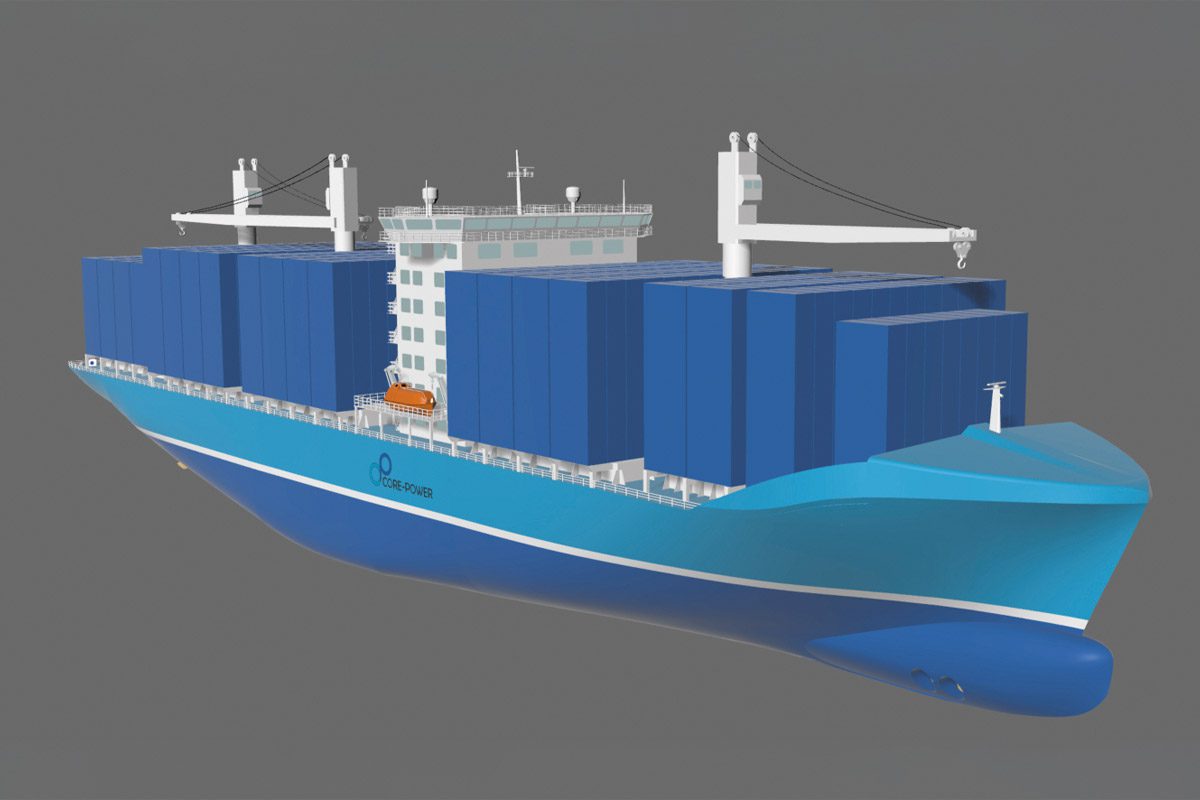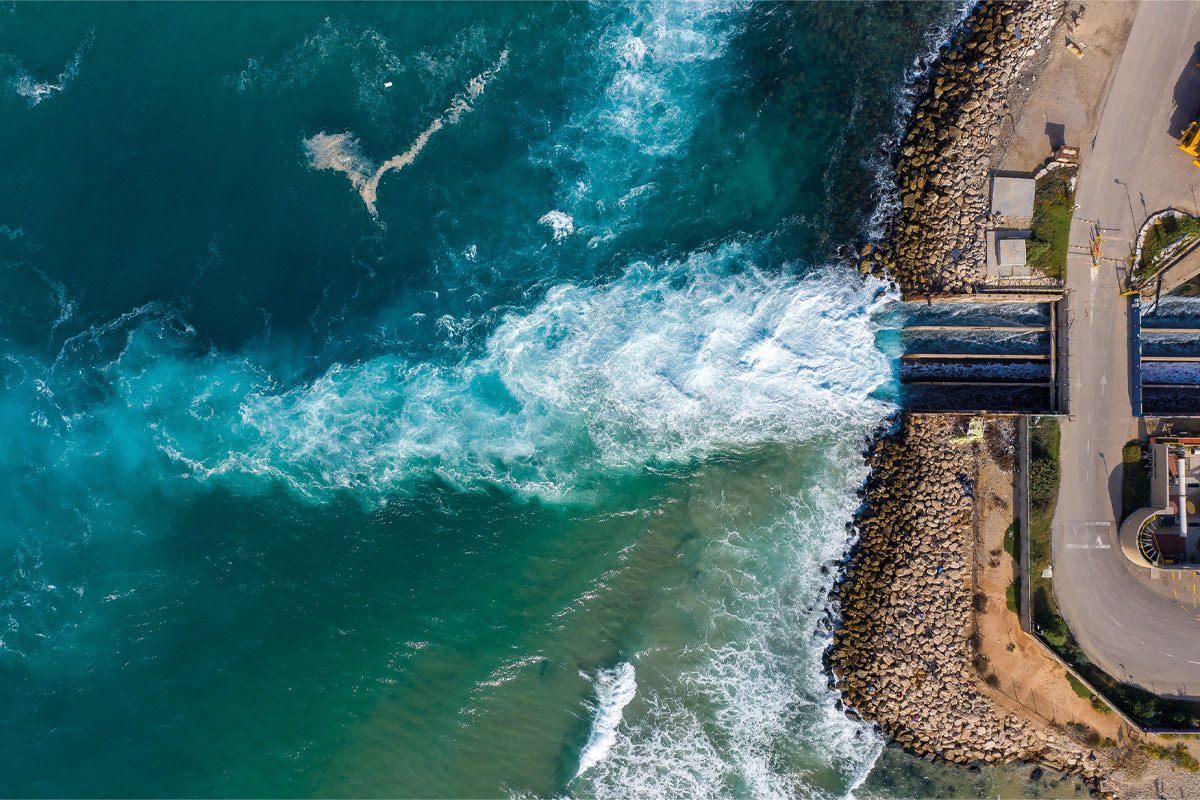Land-based desalination plants are a familiar fixture in many regions of the world but their cost and reliance on fossil fuels remain a bugbear. A new report explores the possibilities presented by a novel alternative.

Reverse osmosis (RO) desalination has increasingly become the technology of choice compared to traditional thermal-based desalination, a pre-eminence attributed to its low energy requirements and mechanical simplicity.
The principal difficulty is the expense involved in the construction, maintenance and the provision of fuel for these facilities.
A new report published by Core Power, a UK company focused on bridging the gap between advanced nuclear technology and the maritime sector, maps out solutions that use floating desalination facilities built on traditional ship hulls, powered by “inherently safe” advanced micro reactors, that can provide both desalinated water and electrical power at its deployment location.
As ‘The Future of Water – Nuclear Powered Floating Desalination’ explains, these self-propelled vessels could produce potable water at a rate of between 60,000 and 450,000 m3 per day matching the scale of existing land-based desalination facilities.
These ships would benefit from the efficiencies of shipyard construction, decreasing deployment time and cost while being flexible in their movement, meaning they would be able to quickly scale up and down dependent on need.
“Of all the problems we face, the global freshwater emergency is going to be the most precarious. We will need long-term, sustainable, and flexible solutions to ensure we can provide potable water to where and when it is needed at a massive scale,” said Mikal Bøe Chairman and CEO or Core Power.
He suggested floating nuclear-powered desalination facilities could provide fresh water to all littoral states, safely, sustainably and without emissions. “The dramatic changes in weather patterns means that rapid deployment is essential, without the years of planning and construction needed to build land-based desalination plants,” he said.
While conventional ship hulls offer flexibility of deployment and easier transit between locations, floating structures can offer more resistance to adverse weather effects.
Core Power’s own solution is designed around a ship’s hull and contains a floating nuclear reactor and RO desalination systems. Using the proposed power output from an advanced micro reactor with an electrical output of 80 MW the facility could provide up to 450,000 m3 of drinkable water per day.
The modelling cited in the report expects the global desalination demand to reach 266 million m3 per day by 2050.
The current proposals for floating desalination rely on either onboard fossil fuel generators or pairing these systems with specifically co-sited or so-called stranded renewables. While these can produce electricity cheaply their reliability is contingent on increasingly erratic weather patterns. Countries suffering water stress often see their peak demand for water coincide with that for electricity. This is due to an increased use of refrigeration and air conditioning.
A renewable-powered facility, especially one using solar, would likely find the best economic value in providing electricity during the day, while a nuclear power source could take over to produce desalinated water at night. Core Power adds that nuclear can be deployed 24 hours a day, with the requisite energy density which solar lacks. However, the firm does foresee that a combination of solar, wind and nuclear will be the likely mix of energy sources in the medium term.
This prospect of nuclear-powered desalination has been made possible by the advent of the next generation of reactors. These include the molten salt reactor (MSR) and heat pipe reactor (HPR), both of a size that opens up opportunities for modular construction in shipyards, decreasing build-time and cost.









